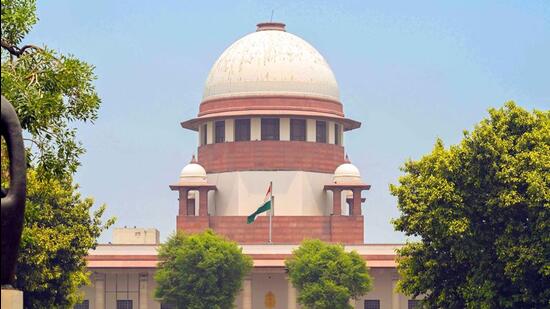Delhi top cop pick: SC leaves issue open for future ruling
The court was hearing a petition filed by NGO Centre for Public Interest Litigation (CPIL) on Asthana’s appointment.
The Supreme Court on Tuesday deferred ruling on whether the appointment of the Delhi Police commissioner should align with the top court’s landmark 2006 judgment in the Prakash Singh case which set criteria for selecting state police chiefs and mandated their fixed tenure.

A bench of justices Surya Kant and N Kotiswar Singh noted that the legal question stemmed from the controversy surrounding the appointment of Rakesh Asthana as the Delhi Police commissioner in July 2021, but deemed the issue infructuous following his retirement a year later.
The court held that it need not review the Delhi high court’s October 2021 judgment, which had affirmed Asthana’s appointment while ruling that the Prakash Singh guidelines — specifically, the six-month residual service rule — did not apply to the police chief in Delhi. However, the bench left the legal question open for future cases.
“Keeping in view the intervening developments (Asthana’s retirement), the petition is disposed of while keeping the questions of law open, to be decided at an appropriate stage,” stated the bench in its order.
The court was hearing a petition filed by NGO Centre for Public Interest Litigation (CPIL) on Asthana’s appointment. The 1984 Gujarat-cadre IPS officer was appointed as Delhi Police commissioner on July 27, 2021, for a one-year period just four days before his retirement. Several petitions, including the one by CPIL, were filed before the Delhi high court challenging his appointment on the prime ground that Asthana’s appointment violated the Prakash Singh judgment’s requirement of a minimum six-month residual service for appointment as a director general of police (DGP).
A DGP is in charge of the entire state’s police force, while the commissioner of police is in charge of the commissionerate. The police commissioner reports to the DGP in most cases. However, Delhi Police is an exception where both roles are held by the same officer.
The Delhi high court upheld Asthana’s appointment on October 12, 2021, reasoning that the Union government should have discretion in selecting the police chief of the national capital, particularly when the officer in question had an unblemished service record. The high court also held that the Prakash Singh judgment’s stipulations were confined to state DGP appointments and did not extend to Delhi’s police commissioner.
Following the high court’s ruling, the petitioners appealed to the Supreme Court, which admitted the plea and sought responses from the Centre and Asthana in November 2022. The Union government defended its decision, citing “extremely challenging” law enforcement conditions in the Capital, with national security implications. Asthana himself filed an affidavit supporting the high court’s reasoning.
However, with Asthana retiring in July 2022, the issue of his appointment became moot, leading to Tuesday’s ruling that left the broader legal question unresolved.
On Tuesday, advocate Prashant Bhushan, representing CPIL, argued that the impugned part of the Delhi high court judgment must be struck down to prevent it from being treated as a precedent.
Countering Bhushan, solicitor general Tushar Mehta, appearing for the Union government, maintained that the Prakash Singh judgment did not apply to the appointment of the Delhi Police commissioner or officers belonging to the Arunachal Pradesh-Goa-Mizoram and Union Territory (AGMUT) cadre.
The bench remarked that certain situations might necessitate deviations from rules and regulations in the interest of public welfare and exigencies.
“We can’t issue a declaration in vacuum. We will decide it in an appropriate case. Issuing a declaration might have some detrimental effect on the appointment of an extraordinary officer in extraordinary circumstances,” the bench observed.
In its order, the court noted: “It’s not in dispute that Asthana has retired during the pendency of the case. The only issue that remains is whether this court’s directions in the Prakash Singh case would apply to the appointment of the Commissioner of Police, Delhi.”
While CPIL asserted that the Prakash Singh judgment should apply to such appointments, the Union government argued that the precedent was inapplicable in cases concerning the appointment, deployment, or posting of AGMUT cadre officers.
The court ultimately disposed of the petition in light of Asthana’s term getting over in July 2022 while keeping the broader legal questions open for future adjudication.






